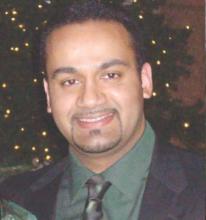The current American Board of Medical Specialties (ABMS)/American Board of Psychiatry and Neurology (ABPN) requirements for maintenance of certification (MOC) do not assure that a practicing physician has maintained competency to practice neurology. The ABMS acknowledges this concept, and one ABMS member website included the following statement: “Many qualities are necessary to be a competent physician, and many of these qualities cannot be quantified or measured. Thus, certification is not a guarantee of the competence of the physician specialist.” In other words, board certification is meant to demonstrate competence, but the board does not guarantee competence. This concept nullifies the notion that the American College of Physicians (ACP) raised, that if you become involved in litigation, board certification will somehow protect you. The fact is that if you are negligent, no piece of paper hanging on your wall will protect you.
The costs to practicing neurologists both in terms of time and money to complete this process are considerable. In a recent study, the cost of physician compliance with MOC was found to range from $23,607 to $40,495 over a 10-year period depending on specialty. Yet, there is no published evidence that demonstrates these requirements serve to improve quality of practice.
Action and reaction
In an article published in the New England Journal of Medicine, Dr. Paul Teirstein, chief of cardiology at the Scripps Clinic, criticized many aspects of MOC. Shortly after publication, the American Board of Internal Medicine issued a “mea culpa” and suspended some of the Practice Assessment, Patient Voice, and Patient Safety requirements.
On Feb. 24, 2015, former American Academy of Neurology (AAN) President Timothy A. Pedley issued a statement on behalf of the AAN arguing that Part IV of MOC is an onerous requirement, and that this ABPN requirement has imposed a hardship on neurologists.
In July 2015, the ABPN announced that as of Jan. 1, 2016, the Feedback Module (patient or peer surveys) will become a highly recommended yet optional component of MOC. The Part IV Clinical Module component (chart review) will remain a requirement.”
A new pathway
Fortunately, there is a viable alternative to the ABMS/ABPN pathway to MOC. The National Board of Physicians and Surgeons (NBPAS.org), is offering recertification in ABMS medical specialties. The board of directors of the NBPAS comprises members representing many of the country’s top academic institutions and specialty organizations. All physician members of NBPAS are volunteers (there is a small paid administrative staff), in contradistinction to the ABMS boards, in which the members of these boards are paid six-figure salaries.
The NBPAS board recertification criteria
1. Previous certification by an ABMS member board.
2. Valid license to practice medicine.
3. At least 50 hours of CME accredited by the Accreditation Council for Continuing Medical Education within the past 24 months.
4. Active hospital privileges (for select specialties).
5. Clinical privileges in certified specialty have not been permanently revoked.
6. Cost: $169 for a 2-year certification.
The MOC requirement itself is incorporated in Medicare law and under the Patient Protection and Affordable Care Act, although there is ambiguity regarding whether MOC must be obtained via the ABMS specialty boards. When these laws were written, the ABMS was essentially “the only game in town” for physicians. The ABMS has been challenged in terms of being a monopoly organization for specialty certification and recertification. Presumably because of this, or perhaps as a preemptive defense, the ABMS has recently acknowledged publicly that it does have competition in the form of the NBPAS. To punctuate this point, one ABMS member website has included the following statement, “Possession of a Board certificate does not indicate total qualification for practice privileges, nor does it imply exclusion of other physicians not so certified.”
Due to pressure from NBPAS and others, the ABMS boards have had to reconsider their position on MOC. Beginning in 2016, the American Board of Anesthesiology decided to discontinue their 10-year recertification examination. Instead, their diplomates will be taking an online 30-question quiz per calendar quarter (120 questions per year). Although this is a positive change, making a 120-question, online, open-book exam for all diplomates recertifying must be significantly cheaper to produce and administer than a secured 10-year exam. That being said, the cost of this new MOC program is $210 per year instead of a lump sum $2,100 to take the closed book exam every 10 years. Clearly, the boards feel a reduction in cost of production to the boards should not translate to a reduction in cost to the diplomates, and that the boards should actually generate even greater revenues.


